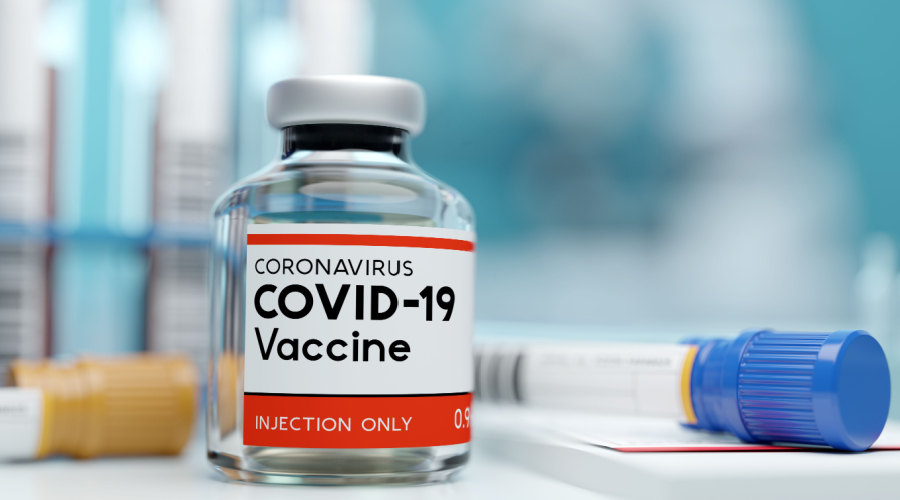The market for durable medical equipment (DME) was worth nearly $42 billion in 2016, according to a 2018 study by Grand View Research, and is forecasted to grow. Conditions like cancer, cardiac disorders, and neurological disorders are on the rise, which means the demand for DME products that aid long-term care like personal mobility devices and medical furniture is on the rise too.
For the savvy pharmacist, this may seem like an excellent business opportunity. But is getting into the DME market worth it in the long run?
J & D Pharmacy, with locations in Warsaw and Sedalia, Missouri, began selling DME products after the owners went to a conference and learned about the need for them in rural areas. “They came back and took a look at our area, and found that, yes, there was no one around to fill any of those prescriptions,” explained Carolynn Fisher, J & D Pharmacy’s home medical equipment manager.
Erickson Pharmacy, located in Clintonville, Wisconsin, also saw demand for DME products in their rural area. They opened the DME portion of the business in 1991 and now serve five counties. “It’s been very much needed in the community,” said Diane Collier, owner of Erickson Pharmacy.
But despite the demand, both pharmacies have experienced regulatory hiccups that have created challenges in running their DME services.
Meeting demand
Patients who are recovering from a hospital stay or living with long-term medical conditions often need more than just their medications to maintain a fulfilling and comfortable quality of life. By offering DME equipment, pharmacies can take a more proactive role in their patients’ health.
Senior patients who have difficulty getting around may come to a DME service for a wheelchair, walker, or cane, while diabetic patients have regular need for glucose testing supplies or compression socks.
“I sell a lot of lift chairs and aids for daily living,” said Collier. “Say you’re having a hard time getting out of the car, there’s a handle that hooks into the door space to assist you.” Hospital beds, wheelchairs, walkers, and oxygen are also commonly needed items at Erickson Pharmacy.
For J & D Pharmacy, CPAPs and CPAP supplies have proven to be both popular and profitable. “We belong to a re-supply program,” Fisher said. “It has helped us with our inventory costs. We can order through them and they ship to us at a flat cost, which we find to be much more profitable than having all that inventory all the time and not knowing which one’s going to go out and which one isn’t.”
Having a traditional retail pharmacy and durable medical equipment under the same roof can have positive effects on both arms of the business. “We have a lot of overlapping patients,” Fisher said. “They get their inhalation medicines from the pharmacy and their nebulizers over here.” It makes billing more convenient, because often in order to get inhalation medications covered, they have to know exactly when they received their nebulizer.
Erickson Pharmacy strives to make its location a one-stop-shop for patients, and having both a traditional retail pharmacy and durable medical equipment helps achieve that. “Our customers are very loyal,” said Collier. “Since we serve five counties, we want to keep our name out there, that we offer lots of different services.”
Coverage headaches
Most DME products will be covered by patients’ insurance as long as a doctor has written a prescription, but like medications on the traditional retail end of pharmacy, reimbursements aren’t always satisfactory. “Reimbursements have gone down and the administrative costs have gone up,” Collier said frankly. Medicare makes up about 30 percent of her business while the rest is mostly third-party commercial insurance.
On top of low reimbursements, the journey to getting equipment covered by insurance is not always smooth sailing. “Our claims don’t adjudicate in real time,” said Fisher, whose clientele is 75 percent Medicare patients. “They have two weeks to decide whether they are going to pay us or not. If we receive a denial, we have to search out the reason and decide if we need to file a redetermination with more documentation or if we can call and do a reopening to change a diagnosis code or something like that.”
At Erickson Pharmacy, Collier has had similar experiences. “Sometimes it seems like all we do is sit on the phone and fight with the insurance company to pay the claims even though we’ve got the doctor’s order, we’ve got the office notes, we’ve got the correct codes.”
The reason for this slowdown is increased regulation. In 2008, the Medicare Improvements for Patients and Providers Act imposed new accreditation requirements for DME suppliers who want to maintain Medicare billing privileges. Collier acknowledged, “It got rid of a lot of the bad players out there, which is amazing for our industry,” but the flip side of that coin means providers are caught up in paperwork and red tape to ensure they are complying with the rules.
One sticking point is getting a certificate of medical necessity for each piece of equipment that’s prescribed to patients. “You have to know all of Medicare’s rules and guidelines,” Collier said. “There’s a website you can look at, but you have to be a rocket scientist to figure out what’s covered and what qualifies it to be covered.”
Even if the pharmacy does know Medicare’s requirements, dealing with Medicare replacement programs can often throw an additional wrench into the process. “They say they follow Medicare guidelines, which we know pretty well, and we have to have a little debate on whether they are paying us fairly based on what Medicare says,” Fisher said. “That runs into redeterminations as well. It’s a struggle, and for less money than we used to get. But we have a large Medicare population and we’re determined to provide them with the best service we possibly can.”
The tangle of requirements put pressure not only on the pharmacy but also on the doctors who prescribe the equipment. “Nine times out of ten, a prescription is going to be inadequate, and then we have to bother the doctor’s office,” Collier said, because the insurance companies require more information before they decide to approve coverage. “They’re so bogged down with paperwork they don’t have time to be a doctor.”
Regulatory Requirements
In order to sell durable medical equipment and get reimbursed by Medicare, pharmacies have to meet stringent standards.
- Accreditation from one of ten national accreditation organizations approved by the Centers for Medicare & Medicaid Services (CMS)
- Compliance with the Supplier Standards set by CMS
- A $50,000 surety bond for each National Provider Identifier
Source: Centers for Medicare and Medicaid Services
Time is money
Another consequence of the regulatory maze is increased administrative costs for pharmacies. Collier acknowledged that she’s had to add staff to her roster just to deal with the ever-changing demands from insurance companies. “You have to have a really good staff and make sure to keep your staff educated in order to get your claims paid,” she said. “I think that’s the biggest challenge of the whole industry.”
Erickson Pharmacy carries DME accreditation with the Accreditation Commission for Health Care (ACHC) that keeps them up to date on any new regulations, but more education is sometimes needed.
Collier recently sent two staff members to a Medicare seminar so they could find solutions to the billing problems they frequently face. She estimated that it cost around $1000, and they didn’t receive answers to their questions because the Medicare specialists didn’t have the right knowledge or resources.
When billing Medicare, pharmacies may face the same kind of disorganization. “You can have three people call Medicare with the exact same question and get three completely different answers. Then you don’t know what’s right or wrong, and the bill gets denied, and denied again,” Collier said. “Then you get on the phone, and they realize the bill never should have been denied in the first place.”
Diversify for success
To bypass the unreliable nature of Medicare and insurance reimbursements, Collier has changed her strategy to incorporate more cash sales. But even that comes with hurdles to jump over. If a pharmacy sells a piece of durable medical equipment for cash, they have to let the patient know that Medicare might cover the item if they had a prescription.
For the patient, this means they would have to make an appointment, go to the doctor, and get a prescription that has all the necessary notes attached, even if all they want is a cane or a walker. Patients who decide they don’t want to go through all that and would rather pay cash have to sign a document that the pharmacy keeps on file. “If we don’t have that signed, and Medicare audits me, they can recoup my money and make me pay the customer back,” Collier said.
Erickson Pharmacy also keeps in touch with their referral sources—like care management programs, emergency rooms, and other specialists—to ensure a steady flow of new patients. “About 70 percent of the business is referrals,” Collier said.
Quality is key
Despite the long and winding road to getting durable medical equipment covered, both Erickson Pharmacy and J & D Pharmacy focus on providing their patients with quality service.
Fisher said that at J & D Pharmacy, “We have a large array of products, but if a patient needs something we don’t have in stock, our ordering staff will immediately go to our vendors and see if we can get it for them.”
Erickson Pharmacy has a similar attentiveness to patients’ needs. They have a 24/7 phone line, and patients are guaranteed to get an actual person on the phone when they call. The pharmacy is open on Saturdays for patients who work during the week. They provide support for patients in other ways, too, like making sure patients using oxygen and CPAP equipment know they have access to a respiratory therapist every day of the week.
Despite so many regulatory obstacles and time-consuming difficulties, both pharmacies have established durable medical equipment operations that have become integral to their communities. Collier attributes this to “having a great staff that actually cares.”
From the Magazine
This article was published in our quarterly print magazine, which covers relevant topics in greater depth featuring leading experts in the industry. Subscribe to receive the quarterly print issue in your mailbox. All registered independent pharmacies in the U.S. are eligible to receive a free subscription.
Read more articles from the December issue:
- This pharmacy does zero business with third parties and thrives
- How to master pharmacy inventory for a better bottom line
- Is your pharmacy neglecting this successful marketing strategy?
- How to differentiate your pharmacy from the competition
- Learn the front-end sales strategy every retailer uses to boost revenue
- What pharmacies need to know about track-and-trace right now
- Here’s what patients have to say about brick-and-mortar pharmacy
A Member-Owned Company Serving Independent Pharmacies
PBA Health is dedicated to helping independent pharmacies reach their full potential on the buy-side of their business. Founded and owned by pharmacists, PBA Health serves independent pharmacies with group purchasing services, wholesaler contract negotiations, proprietary purchasing tools, and more.
An HDA member, PBA Health operates its own NABP-accredited secondary wholesaler with more than 6,000 SKUs, including brands, generics, narcotics CII-CV, cold-storage products, and over-the-counter (OTC) products — offering the lowest prices in the secondary market.












